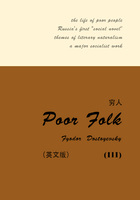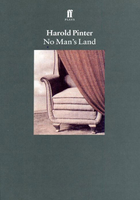‘Where's Oliver?' said the Jew, rising with a menacing look. ‘Where's the boy?'
The young thieves eyed their preceptor as if they were alarmed at his violence; and looked uneasily at each other. But they made no reply.
‘What's become of the boy?' said the Jew, seizing the Dodger tightly by the collar, and threatening him with horrid imprecations. ‘Speak out, or I'll throttle you!'
Mr. Fagin looked so very much in earnest, that Charley Bates, who deemed it prudent in all cases to be on the safe side, and who conceived it by no means improbable that it might be his turn to be throttled second, dropped upon his knees, and raised a loud, well-sustained, and continuous roar—something between a mad bull and a speaking trumpet.
‘Will you speak?' thundered the Jew: shaking the Dodger so much that his keeping in the big coat at all, seemed perfectly miraculous.
‘Why, the traps have got him, and that's all about it,' said the Dodger, sullenly. ‘Come, let go o' me, will you!' And, swinging himself, at one jerk, clean out of the big coat, which he left in the Jew's hands, the Dodger snatched up the toasting fork, and made a pass at the merry old gentleman's waistcoat; which, if it had taken effect, would have let a little more merriment out than could have been easily replaced.
The Jew stepped back in this emergency, with more agility than could have been anticipated in a man of his apparent decrepitude; and, seizing up the pot, prepared to hurl it at his assailant's head. But Charley Bates, at this moment, calling his attention by a perfectly terrific howl, he suddenly altered its destination, and flung it full at that young gentleman.
‘Why, what the blazes is in the wind now!' growled a deep voice. ‘Who pitched that ‘ere at me? It's well it's the beer, and not the pot, as hit me, or I'd have settled somebody. I might have know'd, as nobody but an infernal, rich, plundering, thundering old Jew could afford to throw away any drink but water—and not that, unless he done the River Company every quarter. Wot's it all about, Fagin? D—me, if my neck-handkercher an't lined with beer! Come in, you sneaking warmint; wot are you stopping outside for, as if you was ashamed of your master! Come in!'
The man who growled out these words, was a stoutly-built fellow of about five-and-thirty, in a black velveteen coat, very soiled drab breeches, lace-up half boots, and grey cotton stockings which inclosed a bulky pair of legs, with large swelling calves;—the kind of legs, which in such costume, always look in an unfinished and incomplete state without a set of fetters to garnish them. He had a brown hat on his head, and a dirty belcher handkerchief round his neck: with the long frayed ends of which he smeared the beer from his face as he spoke. He disclosed, when he had done so, a broad heavy countenance with a beard of three days' growth, and two scowling eyes; one of which displayed various parti-coloured symptoms of having been recently damaged by a blow.
‘Come in, d'ye hear?' growled this engaging ruffian.
A white shaggy dog, with his face scratched and torn in twenty different places, skulked into the room.
‘Why didn't you come in afore?' said the man. ‘You're getting too proud to own me afore company, are you? Lie down!'
This command was accompanied with a kick, which sent the animal to the other end of the room. He appeared well used to it, however; for he coiled himself up in a corner very quietly, without uttering a sound, and winking his very ill-looking eyes twenty times in a minute, appeared to occupy himself in taking a survey of the apartment.
‘What are you up to? Ill-treating the boys, you covetous, avaricious, in-sa-ti-a-ble old fence?' said the man, seating himself deliberately. ‘I wonder they don't murder you! I would if I was them. If I'd been your ‘prentice, I'd have done it long ago, and—no, I couldn't have sold you afterwards, for you're fit for nothing but keeping as a curiousity of ugliness in a glass bottle, and I suppose they don't blow glass bottles large enough.'
‘Hush! hush! Mr. Sikes,' said the Jew, trembling; ‘don't speak so loud!'
‘None of your mistering,' replied the ruffian; ‘you always mean mischief when you come that. You know my name: out with it! I shan't disgrace it when the time comes.'
‘Well, well, then—Bill Sikes,' said the Jew, with abject humility. ‘You seem out of humour, Bill.'
‘Perhaps I am,' replied Sikes; ‘I should think you was rather out of sorts too, unless you mean as little harm when you throw pewter pots about, as you do when you blab and—'
‘Are you mad?' said the Jew, catching the man by the sleeve, and pointing towards the boys.
Mr. Sikes contented himself with tying an imaginary knot under his left ear, and jerking his head over on the right shoulder; a piece of dumb show which the Jew appeared to understand perfectly. He then, in cant terms, with which his whole conversation was plentifully besprinkled, but which would be quite unintelligible if they were recorded here, demanded a glass of liquor.
‘And mind you don't poison it,' said Mr. Sikes, laying his hat upon the table.
This was said in jest; but if the speaker could have seen the evil leer with which the Jew bit his pale lip as he turned round to the cupboard, he might have thought the caution not wholly unnecessary, or the wish (at all events) to improve upon the distiller's ingenuity not very far from the old gentleman's merry heart.
After swallowing two of three glasses of spirits, Mr. Sikes condescended to take some notice of the young gentlemen; which gracious act led to a conversation, in which the cause and manner of Oliver's capture were circumstantially detailed, with such alterations and improvements on the truth, as to the Dodger appeared most advisable under the circumstances.
‘I'm afraid,' said the Jew, ‘that he may say something which will get us into trouble.'
‘That's very likely,' returned Sikes with a malicious grin. ‘You're blowed upon, Fagin.'
‘And I'm afraid, you see,' added the Jew, speaking as if he had not noticed the interruption; and regarding the other closely as he did so,—‘I'm afraid that, if the game was up with us, it might be up with a good many more, and that it would come out rather worse for you than it would for me, my dear.'
The man started, and turned round upon the Jew. But the old gentleman's shoulders were shrugged up to his ears; and his eyes were vacantly staring on the opposite wall.
There was a long pause. Every member of the respectable coterie appeared plunged in his own reflections; not excepting the dog, who by a certain malicious licking of his lips seemed to be meditating an attack upon the legs of the first gentleman or lady he might encounter in the streets when he went out.
‘Somebody must find out wot's been done at the office,' said Mr. Sikes in a much lower tone than he had taken since he came in.
The Jew nodded assent.
‘If he hasn't peached, and is committed, there's no fear till he comes out again,' said Mr. Sikes, ‘and then he must be taken care on. You must get hold of him somehow.'
Again the Jew nodded.
The prudence of this line of action, indeed, was obvious; but, unfortunately, there was one very strong objection to its being adopted. This was, that the Dodger, and Charley Bates, and Fagin, and Mr. William Sikes, happened, one and all, to entertain a violent and deeply-rooted antipathy to going near a police-office on any ground or pretext whatever.
How long they might have sat and looked at each other, in a state of uncertainty not the most pleasant of its kind, it is difficult to guess. It is not necessary to make any guesses on the subject, however; for the sudden entrance of the two young ladies whom Oliver had seen on a former occasion, caused the conversation to flow afresh.
‘The very thing!' said the Jew. ‘Bet will go; won't you, my dear?'
‘Wheres?' inquired the young lady.
‘Only just up to the office, my dear,' said the Jew coaxingly.
It is due to the young lady to say that she did not positively affirm that she would not, but that she merely expressed an emphatic and earnest desire to be ‘blessed' if she would; a polite and delicate evasion of the request, which shows the young lady to have been possessed of that natural good breeding which cannot bear to inflict upon a fellow-creature, the pain of a direct and pointed refusal.
The Jew's countenance fell. He turned from this young lady, who was gaily, not to say gorgeously attired, in a red gown, green boots, and yellow curl-papers, to the other female.
‘Nancy, my dear,' said the Jew in a soothing manner, ‘what do YOU say?'
‘That it won't do; so it's no use a-trying it on, Fagin,' replied Nancy.
‘What do you mean by that?' said Mr. Sikes, looking up in a surly manner.
‘What I say, Bill,' replied the lady collectedly.
‘Why, you're just the very person for it,' reasoned Mr. Sikes: ‘nobody about here knows anything of you.'
‘And as I don't want ‘em to, neither,' replied Nancy in the same composed manner, ‘it's rather more no than yes with me, Bill.'
‘She'll go, Fagin,' said Sikes.
‘No, she won't, Fagin,' said Nancy.
‘Yes, she will, Fagin,' said Sikes.
And Mr. Sikes was right. By dint of alternate threats, promises, and bribes, the lady in question was ultimately prevailed upon to undertake the commission. She was not, indeed, withheld by the same considerations as her agreeable friend; for, having recently removed into the neighborhood of Field Lane from the remote but genteel suburb of Ratcliffe, she was not under the same apprehension of being recognised by any of her numerous acquaintances.
Accordingly, with a clean white apron tied over her gown, and her curl-papers tucked up under a straw bonnet,—both articles of dress being provided from the Jew's inexhaustible stock,—Miss Nancy prepared to issue forth on her errand.
‘Stop a minute, my dear,' said the Jew, producing, a little covered basket. ‘Carry that in one hand. It looks more respectable, my dear.'
‘Give her a door-key to carry in her t'other one, Fagin,' said Sikes; ‘it looks real and genivine like.'
‘Yes, yes, my dear, so it does,' said the Jew, hanging a large street-door key on the forefinger of the young lady's right hand.
‘There; very good! Very good indeed, my dear!' said the Jew, rubbing his hands.
‘Oh, my brother! My poor, dear, sweet, innocent little brother!' exclaimed Nancy, bursting into tears, and wringing the little basket and the street-door key in an agony of distress. ‘What has become of him! Where have they taken him to! Oh, do have pity, and tell me what's been done with the dear boy, gentlemen; do, gentlemen, if you please, gentlemen!'
Having uttered those words in a most lamentable and heart-broken tone: to the immeasurable delight of her hearers: Miss Nancy paused, winked to the company, nodded smilingly round, and disappeared.
‘Ah, she's a clever girl, my dears,' said the Jew, turning round to his young friends, and shaking his head gravely, as if in mute admonition to them to follow the bright example they had just beheld.
‘She's a honour to her sex,' said Mr. Sikes, filling his glass, and smiting the table with his enormous fist. ‘Here's her health, and wishing they was all like her!'
While these, and many other encomiums, were being passed on the accomplished Nancy, that young lady made the best of her way to the police-office; whither, notwithstanding a little natural timidity consequent upon walking through the streets alone and unprotected, she arrived in perfect safety shortly afterwards.
Entering by the back way, she tapped softly with the key at one of the cell-doors, and listened. There was no sound within: so she coughed and listened again. Still there was no reply: so she spoke.
‘Nolly, dear?' murmured Nancy in a gentle voice; ‘Nolly?'
There was nobody inside but a miserable shoeless criminal, who had been taken up for playing the flute, and who, the offence against society having been clearly proved, had been very properly committed by Mr. Fang to the House of Correction for one month; with the appropriate and amusing remark that since he had so much breath to spare, it would be more wholesomely expended on the treadmill than in a musical instrument. He made no answer: being occupied mentally bewailing the loss of the flute, which had been confiscated for the use of the county: so Nancy passed on to the next cell, and knocked there.
‘Well!' cried a faint and feeble voice.
‘Is there a little boy here?' inquired Nancy, with a preliminary sob.
‘No,' replied the voice; ‘God forbid.'
This was a vagrant of sixty-five, who was going to prison for not playing the flute; or, in other words, for begging in the streets, and doing nothing for his livelihood. In the next cell was another man, who was going to the same prison for hawking tin saucepans without license; thereby doing something for his living, in defiance of the Stamp-office.
But, as neither of these criminals answered to the name of Oliver, or knew anything about him, Nancy made straight up to the bluff officer in the striped waistcoat; and with the most piteous wailings and lamentations, rendered more piteous by a prompt and efficient use of the street-door key and the little basket, demanded her own dear brother.
‘I haven't got him, my dear,' said the old man.
‘Where is he?' screamed Nancy, in a distracted manner.
‘Why, the gentleman's got him,' replied the officer.
‘What gentleman! Oh, gracious heavens! What gentleman?' exclaimed Nancy.
In reply to this incoherent questioning, the old man informed the deeply affected sister that Oliver had been taken ill in the office, and discharged in consequence of a witness having proved the robbery to have been committed by another boy, not in custody; and that the prosecutor had carried him away, in an insensible condition, to his own residence: of and concerning which, all the informant knew was, that it was somewhere in Pentonville, he having heard that word mentioned in the directions to the coachman.
In a dreadful state of doubt and uncertainty, the agonised young woman staggered to the gate, and then, exchanging her faltering walk for a swift run, returned by the most devious and complicated route she could think of, to the domicile of the Jew.
Mr. Bill Sikes no sooner heard the account of the expedition delivered, than he very hastily called up the white dog, and, putting on his hat, expeditiously departed: without devoting any time to the formality of wishing the company good-morning.
‘We must know where he is, my dears; he must be found,' said the Jew greatly excited. ‘Charley, do nothing but skulk about, till you bring home some news of him! Nancy, my dear, I must have him found. I trust to you, my dear,—to you and the Artful for everything! Stay, stay,' added the Jew, unlocking a drawer with a shaking hand; ‘there's money, my dears. I shall shut up this shop to-night. You'll know where to find me! Don't stop here a minute. Not an instant, my dears!'
With these words, he pushed them from the room: and carefully double-locking and barring the door behind them, drew from its place of concealment the box which he had unintentionally disclosed to Oliver. Then, he hastily proceeded to dispose the watches and jewellery beneath his clothing.
A rap at the door startled him in this occupation. ‘Who's there?' he cried in a shrill tone.
‘Me!' replied the voice of the Dodger, through the key-hole.
‘What now?' cried the Jew impatiently.
‘Is he to be kidnapped to the other ken, Nancy says?' inquired the Dodger.
‘Yes,' replied the Jew, ‘wherever she lays hands on him. Find him, find him out, that's all. I shall know what to do next; never fear.'
The boy murmured a reply of intelligence: and hurried downstairs after his companions.
‘He has not peached so far,' said the Jew as he pursued his occupation. ‘If he means to blab us among his new friends, we may stop his mouth yet.'















